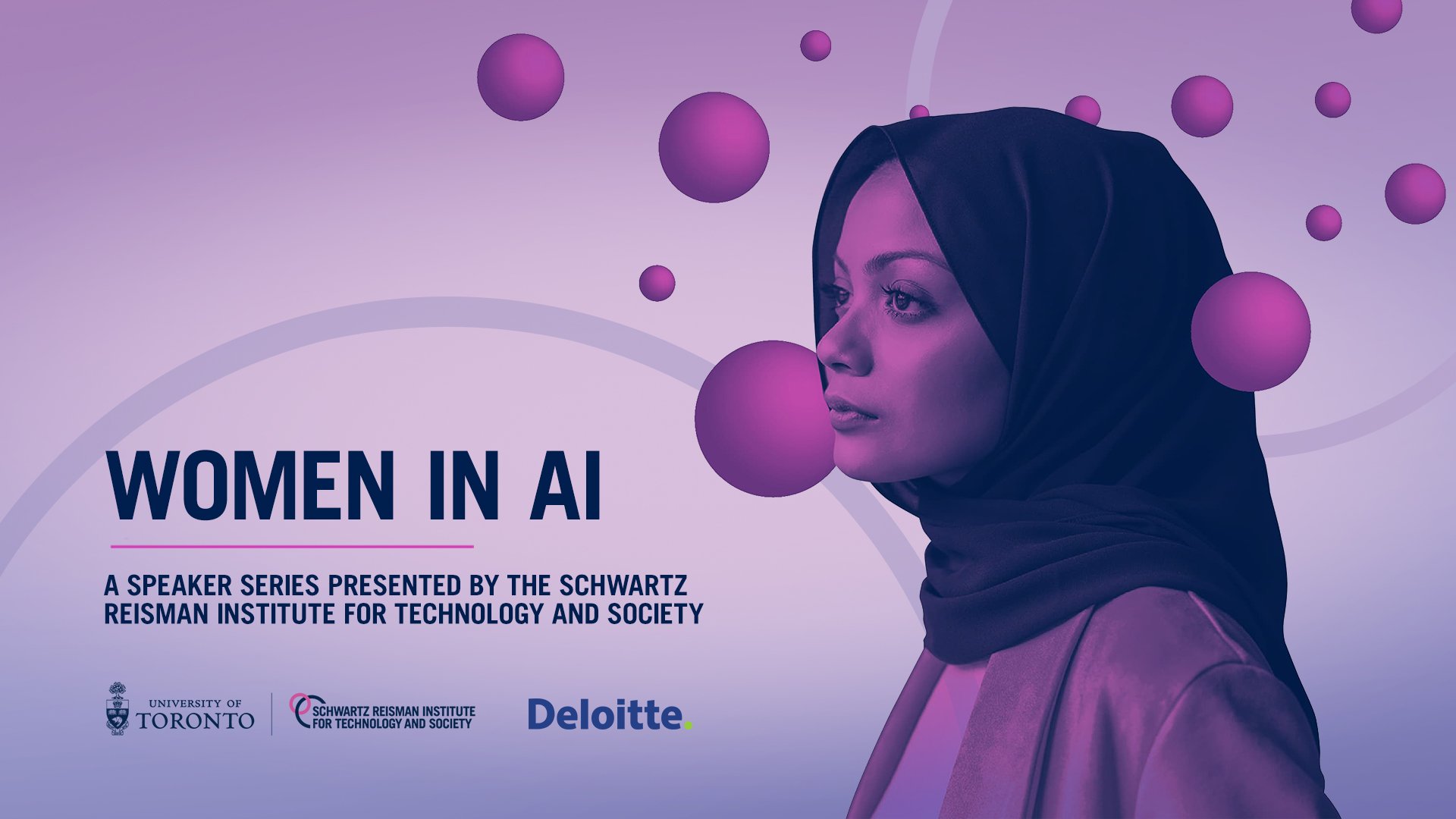
Five things to know about Bill C-27
In June 2022, the Canadian federal government introduced Bill C-27, the Digital Charter Implementation Act, which contains newly-proposed legislation relating to consumer privacy, data protection, and the first comprehensive laws governing artificial intelligence (AI) systems in Canada. In the first of a series of posts covering the potential impact of Bill C-27, SRI Policy Researcher Maggie Arai explores the bill’s key takeaways.
Entering the uncanny valley: Technophilosophy September Soirée explores the impacts of VR
How is virtual reality changing the way we live? Does living in a virtual landscape create new ethical and moral problems? At the first annual Technophilosophy September Soirée, SRI Research Lead Karina Vold convened an interdisciplinary panel of University of Toronto scholars to discuss the impacts of new technologies on the way we understand our world.
Schwartz Reisman Institute for Technology and Society announces Women in AI series
The Schwartz Reisman Institute is launching a new speaker and mentorship series to promote gender equity in artificial intelligence research, in collaboration with Deloitte. The Women in AI series will convene leading female AI researchers to share knowledge through seminar events that promote opportunities for women across the technology sector.
Mimetic models: Ethical implications of AI that acts like you
SRI Graduate Fellow Reid McIlroy-Young’s new research explores the concept of “mimetic models”: algorithms designed to simulate the behaviour of an individual in new situations. In a new paper, McIlroy-Young reflects on the ethical implications of such models, in what scenarios they might be used, and directions for future research.
Schwartz Reisman Institute for Technology and Society appoints new research leads
The Schwartz Reisman Institute for Technology and Society at the University of Toronto has appointed five new research leads to help shape the Institute’s ongoing research program. The new research leads bring expertise and insights on the social impacts of artificial intelligence from the fields of economics, computer science, literature, and philosophy.
SRI Seminar Series returns for fall 2022 featuring talks on the ethics of technology
The SRI Seminar Series convenes the Schwartz Reisman Institute’s community to discuss cutting-edge ideas and scholarship at the intersection of technology and society. The 2022 Fall Seminar Series begins on September 14, 2022 with a presentation by Julie Shah, director of the Interactive Robotics Group at MIT’s Computer Science and Artificial Intelligence Laboratory.
Building democracy into recommender systems will require new tools and frameworks
In a session at Absolutely Interdisciplinary 2022, SRI Associate Director Peter Loewen, Jonathan Stray of the Berkeley Center for Human-Compatible AI, and Taylor Owen of McGill University discussed what methods and principles might be used to redesign the algorithms that decide what billions of people see in accordance with democratic values.
Anna Su explores digital constitutionalism and the futures of digital governance
The rise of the information society and the ubiquity of digital technologies brings new challenges for governance, as traditional institutions might not be sufficient to address the complex issues emerging from these new tools. In a talk at Absolutely Interdisciplinary 2022, SRI Faculty Fellow Anna Su explored the phenomenon of digital constitutionalism and the importance of human rights to balance powers in the digital realm.
Redrawing data boundaries: From private collection to public good
Can the data collected by private companies be recognized as a public resource to be leveraged for social good? What obstacles stand in the way? In a panel discussion at Absolutely Interdisciplinary 2022, SRI Associate Director Lisa Austin discussed the shape of data today with Eric Horvitz (Microsoft), Aziz Z. Huq (University of Chicago), Robert Seamans (Stern School of Business, NYU), and Pamela Snively (TELUS).
Explanation and justification in partial view AI models
Calls for AI to be “explainable” have been mounting for several years, leading computer scientists to provide accounts of the decisions of complex ML systems. But are such accounts the only kinds of explanations we need? At Absolutely Interdisciplinary 2022, Finale Doshi-Velez and Boris Babic explored the differences between explanation and justification, and how insights from other regulatory domains can help us build trustworthy systems.
Evolutionary biology offers new perspectives on designing AI
In a session at Absolutely Interdisciplinary focused on collective agency in evolution and AI, SRI Research Lead Denis Walsh, Kate Larson, and Richard Watson discussed what insights evolutionary biology and computer science can teach each other about multi-agent systems, collectives, and the paradox of individuality.
AI provides new insights into social learning
In a session at Absolutely Interdisciplinary 2022 on “Natural and Artificial Social Learning,” SRI Associate Director Sheila McIlraith, Faculty Affiliate Jennifer Nagel, and Natasha Jaques of Google Brain explored how social learning can benefit a wide range of agents, including humans and AI systems, and how insights from philosophy and computer science can illuminate each other.













